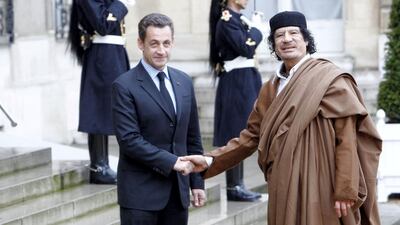Prosecutors have accused four executives at two French companies of helping authorities in Libya and Egypt to spy on opposition figures who were later detained and tortured, a rights group said on Tuesday.
The firms are suspected of selling internet surveillance gear to the two countries which were used to track down regime opponents.
The former chief of Amesys, Philippe Vannier, was charged in Paris last week with "complicity in acts of torture," according to the International Federation of Human Rights (FIDH), which was confirmed by judicial sources.
Olivier Bohbot, head of Nexa Technologies, and two other executives were charged with "complicity in acts of torture and forced disappearances".
"This is a considerable step that demonstrates that what we see every day on the ground – the links between the activities of these surveillance companies and violations of human rights – can be considered criminal and lead to complicity charges," Clemence Bectarte and Patrick Baudouin, lawyers for FIDH, said.
Investigations were opened after the deals were reported by The Wall Street Journal in 2011, when the Arab uprisings swept through several Middle East countries.
The WSJ report revealed that Amesys had provided Deep Packet Inspection technology to the government of Muammar Qaddafi, allowing it to secretly intercept internet messages.
Amesys acknowledged the tech deal with Libya that was made in the context of easing ties with the West, starting in 2007, when Col Qaddafi visited French president Nicolas Sarkozy in Paris.
At least six alleged victims of the spying who joined the legal action as plaintiffs were questioned by French judges from 2013 to 2015.
In 2017, judges turned their focus to Nexa, which is accused of selling an updated version of Amesys's software called "Cerebro", capable of real-time message or call tracing, to the government of Egyptian President Abdel Fattah El Sisi.
The FIDH said judges were also investigating the sale of similar technologies to Saudi Arabia.

